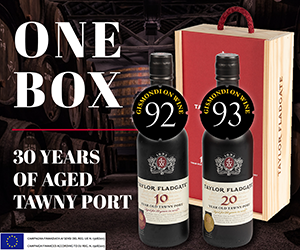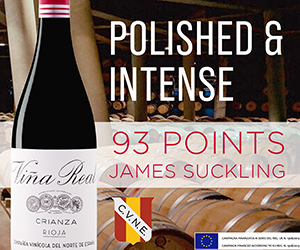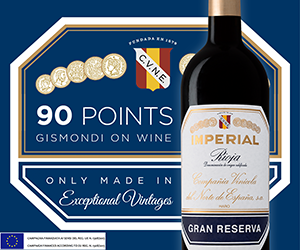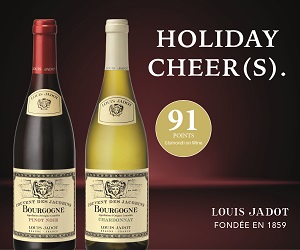If you live on the edge of wine chances are you have already been discussing the concept of natural wines.
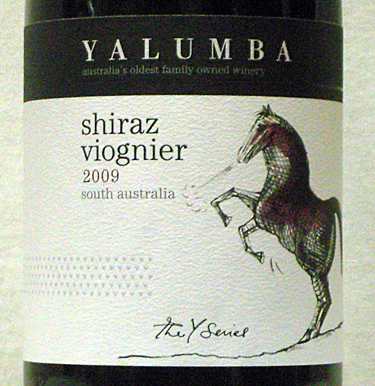
If not, get ready, because "natural" is fast becoming a buzzword even in the sleepy, let's-not-change-a-thing varietal wine world.
What makes the story so fascinating is that people who love wine are making a compelling case for natural wine, while people who love wine are making an equally compelling case against natural wine. You read that right - but then, the word natural has that effect on people.
I've been watching a small band of growers change their ways in the last decade, joining an even smaller group around the world that has been working organically, and in some cases biodynamically, for the longest time.
But natural wine is far more than a vineyard phenomenon. It extends well into the winery and it's here where the discussion becomes heated.
In question, and rightly so, are man-made yeasts, the addition of enzymes, powdered tannins, gel-atin, filtering of any kind, colour enhancers such as Mega Purple and much more. How about all that machinery performing reverse osmosis and cryoextraction or simply the addition of sugar, acid, sulphur and, well, the list goes on and on.
Challenging the status quo seldom makes you popular but it makes you think. Does a wine need to be natural to truly express its terroir? Is there room for natural wine versus wine that is heavily manipulated?
I believe natural wine is a philosophy or way of life. When you meet a grower who is working in a natural way it is easy to see how the same philosophy can be carried into a winery and ultimately into a bottle.
The challenge with natural wine, especially those producers who eschew using sulphur, is that many can be defective, and when I say defective I mean well beyond the quirky or idiosyncratic. It's unrealistic to expect every so-called natural wine to be delicious, and that's despite being given the benefit of the doubt more often than not to celebrate its difference. But without quality, wine change will be slow.
Still I'm as optimistic as ever about natural wine; even if we can't define it yet, or should I say certify it. I spent three days last month travelling over 800 km to visit three vineyards struggling to grow dry-farmed, bush vine Chardonnay and Pinot Noir in cool climates that could change the face of Chilean wine. In some ways it is almost unnatural.
Yet when you meet the people, walk the vineyards, taste the wine and feel the commitment, it is so apparent naturally-made wine is the only direction to head if you want to make true appellation-based wines.
It's hard to argue against no additives, but it will be even harder to regulate it. That's why I'm betting the earliest evolution of natural wines will be people-based and more evangelical than regulatory. Personal integrity will be at the heart of natural wines, and I'm fine with that for a beginning.
Organic wine, biodynamic farming, lighter bottles, carbon neutral, natural, sustainable, earth friendly, terroir-based - are you getting the picture? Wine is changing from the vineyard to the glass and this time it seems as if the less-is-more crowd is winning. And even if change turns out to be painfully slow, it is the questions about people, origin, methods, a wine's authenticity and a winery's transparency that should instil hope in everyone that future wines will intrigue, to say the least. But then, like most anything in wine, you the consumer will have the final say at the cash register.
This week we look at more conventional wines, ironically from a country that not long ago pro-posed vineyards should be developed to grow grapes that would end up in wine at certain price points. That phase of Australian wine has thankfully come to a halt.
We begin with Jacob's Creek Reserve Shiraz 2008. Expect all the normal peppery, meaty, smoky, blueberry and licorice root flavours with just a hint of cedar bark on the finish. This wine still could benefit from another year or so in bottle, but at $17, we recommend decanting for 45 minutes and serving it with grilled lamb chops. Good value.
The Yalumba Shiraz Viognier Y Series 2009 hails from Barossa Valley. The attack is smooth with fresh acidity and some elegance. Blueberry, coffee, spicy, peppery, cherry jam and licorice flavours coat your palate. Plenty of fruit suggest this would be a fun dinner wine with braised meats.
One of the richer reds today is Katnook Founder's Block Shiraz 2008 also from Coonawarra. The attack is smooth and fresh with light tannins and peppery, blueberry, black olive and coffee flavours. Love the value here. Serve with grilled T-bone steak.
The Lucky Country Shiraz 2010 is a much riper, softer easy-sipping shiraz in the true Oz style. The plate is a mix of spicy, floral, milk chocolate, plum jam aromas and black cherry jam, smoky, chocolate, coffee flavours. Try this with your favourite sausage pizza. Suave but somewhat tart and smoky summarizes the Wynns Coonawarra Estate Shiraz 2009. The nose and flavours mix smoky, meaty, vanilla, blueberry, cigar and coffee bean notes with an earthy aftertaste. Try this with a sharp cheddar or Gouda.
The Thorn-Clarke Shotfire Shiraz 2008 is all Barossa with its showy nose brimming with big, smoky, white pepper, cedar and blueberries. The entry is warm and round with a whack of black fruits, dried herbs and sweet vanilla. A very warm spicy attractive style of shiraz that would be great with grilled lamb chops.
QUE SHIRAZ
Jacob's Creek Reserve Shiraz 2008, South Eastern Australia
Price: $17
UPC: 9300727140517
Score: 88/100
Remarks: Peppery, savoury, smoky, blueberry fruit. Good value.
Yalumba Shiraz Viognier Y Series 2009, Barossa Valley, South Australia
Price: $19
UPC: 9311789000824
Score: 87/100
Remarks: Blueberry, coffee, spicy, peppery, cherry jam flavours.
Katnook Founder's Block Shiraz 2008, Coonawarra, South Australia
Price: $20
UPC: 636662042623
Score: 88/100
Remarks: Good fruit and complexity reflecting its cooler origins. Good value.
The Lucky Country Shiraz 2010, Barossa Valley / McLaren Vale, South Australia
Price: $20
UPC: 009331727010388
Score: 87/100
Remarks: Black cherry jam, smoky, chocolate, coffee, pepper flavours.
Wynns Coonawarra Estate Shiraz 2009, South Australia
Price: $22
UPC: 0012354051003
Score: 87/100
Remarks: Peppery, savoury, herbal, blueberry fruit. Made for steak.
Thorn-Clarke Shotfire Shiraz 2008, Barossa Valley, South Australia
Price: $30
UPC: 00853065000115
Score: 89/100
Remarks: Always Barossa showy; warm and round with a whack of black fruit.

 quicksearch
quicksearch


